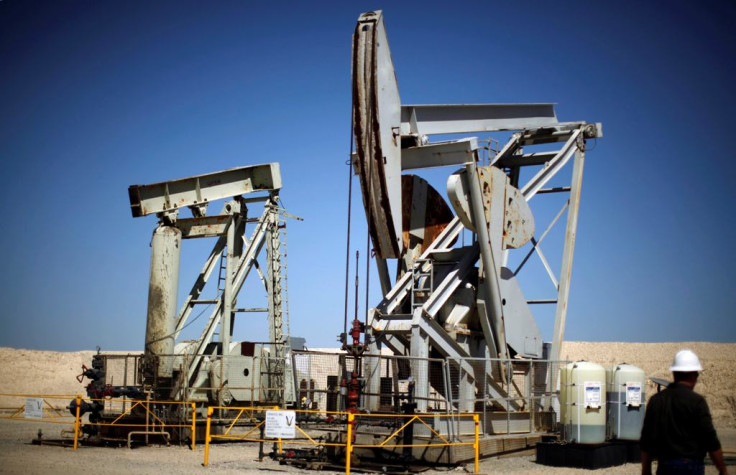Hedge Funds Lower Bullish Oil Bets Amid Global Supply Glut
Oil prices drop for a fourth month in a row in October.

Hedge funds have lowered their bullish holdings in crude as rising US output has added to a global supply glut.
Money managers reduced net-long positions in the benchmark West Texas Intermediate by 2.3% in the week ended 28 October, US Commodity Futures Trading Commission (CFTC) data showed. Long positions retreated to their lowest level in 17 months.
Rob Haworth, a senior investment strategist at U.S. Bank Wealth Management, which manages assets worth some $120bn, told Bloombeerg that prices were dropping because markets were flooded with supplies.
John Kilduff, a partner at New York-based hedge fund Again Capital, which focuses on energy, told the news agency investors were selling because the Organization of Petroleum Exporting Countries (Opec), which pumps a third of the world's oil, was "producing too much oil".
"The focus in November will be on the [Opec] meeting and whether they can come to an agreement to make cuts."
Opec members are scheduled to meet on 27 November in Vienna to discuss output targets.
October Data
Oil prices dropped for a fourth month in a row in October as fears surrounding weak global economic growth fuelled demand concerns.
Brent lost over 9% last month while US crude shed over 11%.
Opec production rose to its highest in more than a year in October, a Bloomberg survey showed, just as the US, the world' leading oil consumer, moved closer towards energy independence.
American output rose to the highest level in at least three decades in the week ended 24 October, US EIA data showed, on the back of the shale boom there.
Opec produced 30.974 million barrels a day in October, the most since August 2013, led by gains in Iraq, Saudi Arabia and Libya.
US crude output rose 0.4% to 8.97 million barrels a day in the seven days to 24 October, the highest in weekly EIA data that goes back to January 1983.
Goldman Forecast
Goldman Sachs has cut its price projection for Brent and the WTI by $15 a barrel for the first-quarter of 2015.
Goldman has said it expects the price of Brent to decline to $85 from $100, and that of the WTI to decline to $75 a barrel from $90.
The investment bank cited rising production in non-Opec countries outside North America, which is expected to outstrip demand, as a reason behind its forecast.
IEA Forecast
Earlier in October, Paris-based International Energy Agency (IEA) cut its estimates for oil demand for 2014 and 2015, and suggested that the fuel prices may drop further.
The global energy watchdog cut its 2014 estimate for oil demand growth by 200,000 barrels per day (bpd), from its previous forecast, and now expects demand growth of 0.7 million bpd to 92.4 million.
It cut its 2015 estimate by 300,000 bpd and now expects demand growth of 1.1 million bpd to 93.5 million.
© Copyright IBTimes 2025. All rights reserved.






















